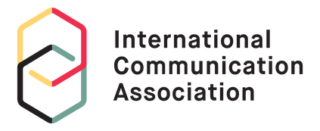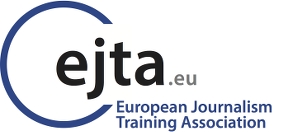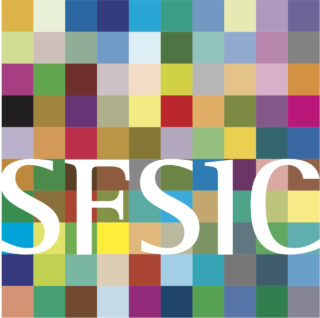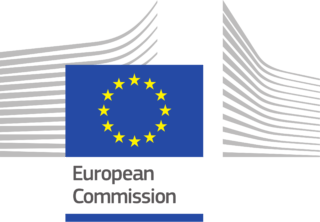- The
Event place Metz , France
Endorsed by the following ICA divisions: Journalism Studies, Political Communication.
Theme
The recent global resurgence of populism, most notably in countries with strong democratic traditions, has brought the issue of politics’ relationship to truth to the forefront of academic debates, firmly entrenching the notion that we have now entered an era of post-truth. As they effectively harness the affordances of unregulated social platforms and the potential of personal data commodification to advance their political agendas, populist leaders across the globe also exploit both the systemic flaws of media systems and the conditions that predispose part of the citizenry to believe in alternative narratives regardless of their factual accuracy. This preconference examines how the interplay between such dynamics severely challenges social ties and enables populism around the world.
The acceleration of innovation in communication technology and the increasing commodification of personal data have combined with the already hyper-segmented offer of legacy media to throw news media ecologies across the globe in a state of flux. Through selective exposure, users are provided with infinite opportunities to reinforce their pre- existing attitudes and engage with the political process affectively, a phenomenon further compounded by new challenges to journalistic authority that accelerate already existing trends and shake traditional informational hierarchies to their cores. The resulting audience polarization in turn jeopardizes the possibility of a common citizenship, as users are effectively barred from cultivating shared patterns of representation of the social world.
This preconference invites unpublished, innovative papers focusing on, but not limited to, the following topics:
- Disinformation flows, connectivity and network structures
- Polarization and partisan news ecosystems
- Hybridization of “old” and “new” media logics
- “Echo chamber” effects, processes of self-selection
- Algorithms and “filter bubbles” in question
- Affective publics and populism
- People’s relation to information, modes of engagement
- Actors’ strategies
- Data-driven propaganda strategies (e.g. Cambridge Analytica)
- Platforms, segregated online communities, and counter publics
- Re-envisioning journalism practices
- New hierarchies and roles, erosion of journalists’ gatekeeping function, challenges tojournalists’ cultural authority
- Reshaping / maintaining the boundaries of journalistic authority
- Innovation initiatives, redefinition of professional norms, practices, and routines
- The role of local and global journalism in repairing social ties
Objectives
The preconference will bring together established researchers and PhD students. More specifically, it will include presentations from 12 participants along with 3 panel discussions, a keynote address and a research escalator session (12 PhD students/candidates).
The research escalator session will provide the selected PhD students/candidates with the opportunity to present and discuss their work with a matched senior scholar.
- Speakers’ finalized papers will be submitted to an academic journal as a special issue proposal.
- The “Most Promising Scientific Research” by a PhD student, which will be selected by the Scientific Committee, will be published in the French peer- reviewed academic journal Questions de Communication (English section “En VO”), edited by the CREM (Center for Research on Mediations).
The keynote speaker is Prof. Dr. Thorsten Quandt, University of Münster, Germany, Director of Department of Communication (IfK) & Spokesman of the Center for Digitized Public Spheres Research (ZEDOE).
Submission and selection process
Authors should submit an extended abstract of 1000-1500 words to: crem-ica-preconference-2022-metz-contact@univ-lorraine.fr
by January 31, 2022.
The extended abstracts should include the main idea/argument, research questions, a short literature review and/or theoretical perspectives, information on methodology and empirical findings (if relevant). We welcome different approaches, including discussions of literature, concepts and theories, historical perspectives, and empirical analyses.
All submitted abstracts must be anonymous with no reference to author(s). Include name, affiliation and contact details either in the email or in a separate attachment. For research escalator submissions, please specify “Research escalator” under the title of the abstract.
The extended abstracts will go through a double-blind peer review process. Decisions on acceptance will be made by February 15, 2022.
Authors of accepted abstracts are expected to attend the preconference and present in person.
Date: Wednesday, May 25th 2022
Start Time: 9:30am
End Time: 5:00pm
Location/Venue: Metz, France (1-hour 20 min from Paris by high-speed train)
(all registered participants will be provided with guidelines to come to Metz from Paris)
Registration Fee
- 100 USD / for registered participants: speakers and attendees that are faculty members
- 50 USD / for students, and speakers and attendees with no employment
Fee includes: participation in the conference, buffets (finger food) and coffee.
For participants from developing/transitional countries and students/early career scholars who have been accepted to present, a limited number of hardship waiver is available, upon application. They will be exempt from the registration fee and will be offered a round-trip train ticket from Paris to Metz. (See below).
The preconference is open to both ICA and non-ICA members. Attendees will need to create a profile to register.
Organizer
Center for Research on Mediations (CREM), Université de Lorraine
Steering committee
François Allard-Huver, Nicolas Hubé, Angeliki Monnier, Sebastien Mort, Jacques Walter, Sandrine D’Alimonte
Sponsorship
This preconference has received endorsements from the ICA Journalism Studies Division, the ICA Political Communication Division, the European Journalism Training Association (EJTA), the French Society of Information and Communication Sciences (SFSIC), as well as the Association for the Study of Journalism (GIS Journalism, France).
This preconference is made possible in part thanks to the generous support from the French National Research Agency (ANR, project M-Phasis) and the European Commission (Erasmus+ project Fact-checking and Media Literacy)
Description
One-day preconference, 12 plenary presentations, 3 panel discussions, 1 research escalator session (with 12 PhD students).
Hardship waiver
The hardship waiver can be granted to applicants who meet the following TWO requirements:
- Their paper has been accepted for presentation and they solemnly commit to attend the preconference and present in person.
- At least ONE of the following four criteria also applies:
- They are currently a student (enrolled in a communication program at a higher education institution as of September 2021) or early-career scholar (any non-tenured scholar up to four years after receiving a PhD at the date of the conference start).
- They currently reside in a Tier B or C country. Developing/transitional countries are identified annually by the United Nations. Potential applicants should check the country tier chart to determine whether they are eligible under this criterion. Note that ICA determines eligibility based on country of residence, not of origin.
- They are economically disadvantaged, as a result of systemic access issues, as a member of an ethnic, religious, or linguistic minority (a group that is numerically non-dominant) or an otherwise equity-seeking group in their country of residence (regardless of tier).
- They are currently undergoing a period of financial hardship (regardless of tier).
If you wish to apply for the hardship waiver, please fill in the following application form:
Your application will be reviewed by the steering committee and applicants will be notified by February 15th (along with the results of the selection process).
Partners

ICA – International Communication Association
ICA

Université de Lorraine

CREM – Centre de recherche sur les médiations
CREM

European Journalism Training Association
EJTA

SFSIC
SFSIC

GIS Journalisme

Agence Nationale de la Recherche
ANR
